Part 2 of 2 Parts (Please read Part 1 first)
Kasra Aarabi added that, “The Biden administration’s refusal to impose direct consequences on Iran – despite its consistent acts of aggression since October 7, including an Islamic Revolutionary Guards Corps proxy attack that killed three US soldiers in Syria – has emboldened the Iranian regime and made supreme leader Ayatollah Khamenei and the IRGC believe the regime can escalate without facing any repercussions.”
Gen Michael Kurilla is the commander of U.S. Central Command. He warned that the U.S. armed services committee on Thursday that if Iran became a nuclear power, it would “change the Middle East forever”. He added, “The key to deterrence is for Tehran to understand that this behavior will have consequences for it,” clarifying that “the deterrence is temporary”.
There have long been concerns about Tehran’s answers to questions about nuclear material found at three Iranian facilities and the extent to which weapons inspectors can do their job in the country. Iranian answers have been deemed as not credible by the IAEA. The US is losing patience with what it describes as Iranian stonewalling.
Laura Holgate is the US envoy to the IAEA. She told the board last week, “After five years of only limited, last-minute cooperation by Iran; five years of failure by Iran to follow through on its commitments; and five years of unresolved questions related to the presence of nuclear material at undeclared locations in Iran, we cannot allow Iran’s current pattern of behavior to continue.”
Holgate has asked for a definitive comprehensive report from Grossi on Iran’s compliance before the next board meeting in June. At that meeting, the E3 group, consisting of Britain, France and Germany, will have to consider further sanctions via the UN.
The E3 were very blunt in their assessment of the situation. In a statement, they said, “Iran has continued enriching uranium far beyond what it committed to in the Joint Comprehensive Plan of Action (JCPoA), the 2015 international nuclear deal with Iran. Iran must now take serious and meaningful steps that show a genuine desire to de-escalate. Recent public statements made in Iran regarding its technical capabilities to produce nuclear weapons go in the opposite direction.”
Corinne Kitsell is the UK ambassador to the IAEA. She said, “After so many missed opportunities and lost time, the need for the board to hold Iran accountable to its legal obligations is long overdue.”
Iran insists it is willing to negotiate a new version of the JCPoA nuclear deal and talks in the background with the deputy foreign minister, Ali Bagheri, and his European counterparts continue.
At the same time, Iran is increasingly highlighting Israel’s semi-declared nuclear weapon program. Hossein Amirabdollahian is the Iranian foreign minister. He told a Geneva disarmament conference in February that the Israeli regime was “the real source of the proliferation of weapons of mass destruction” in the region. He added that “It is necessary that the entire nuclear arsenal of this regime be eliminated, and all of its nuclear facilities be placed under safeguards and verification mechanisms of the International Atomic Energy Agency.”
Kasra Aarabi, of United against Nuclear Iran, said, “The remainder of this year will be extremely volatile, not least as there is growing mood within the regime that the next 10 months may present the best opportunity to move towards weaponization prior to a potential new administration in White House.”
Blog
-
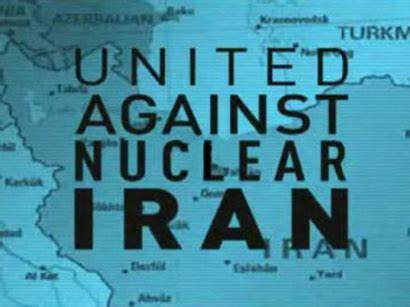
Nuclear Weapons 856 – International Community Concerned About Iranian Uranium Enrichment – Part 2 of 2 Parts
-
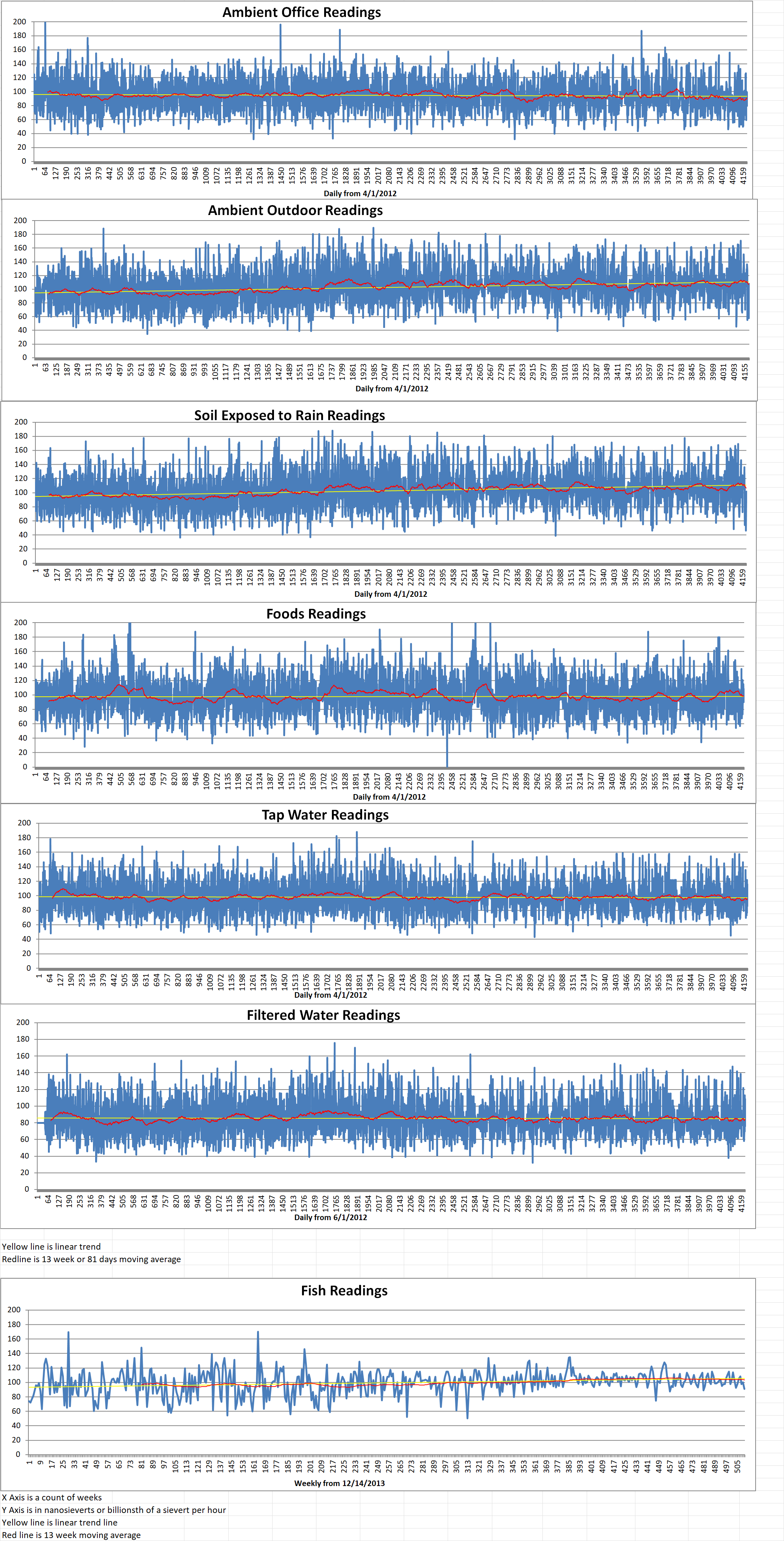
Geiger Readings for March 12, 2024
Ambient office = 80 nanosieverts per hour
Ambient outside = 108 nanosieverts per hour
Soil exposed to rain water = 102 nanosieverts per hour
Avocado from Central Market = 108 nanosieverts per hour
Tap water = 115 nanosieverts per hour
Filter water = 108 nanosieverts per hour
-
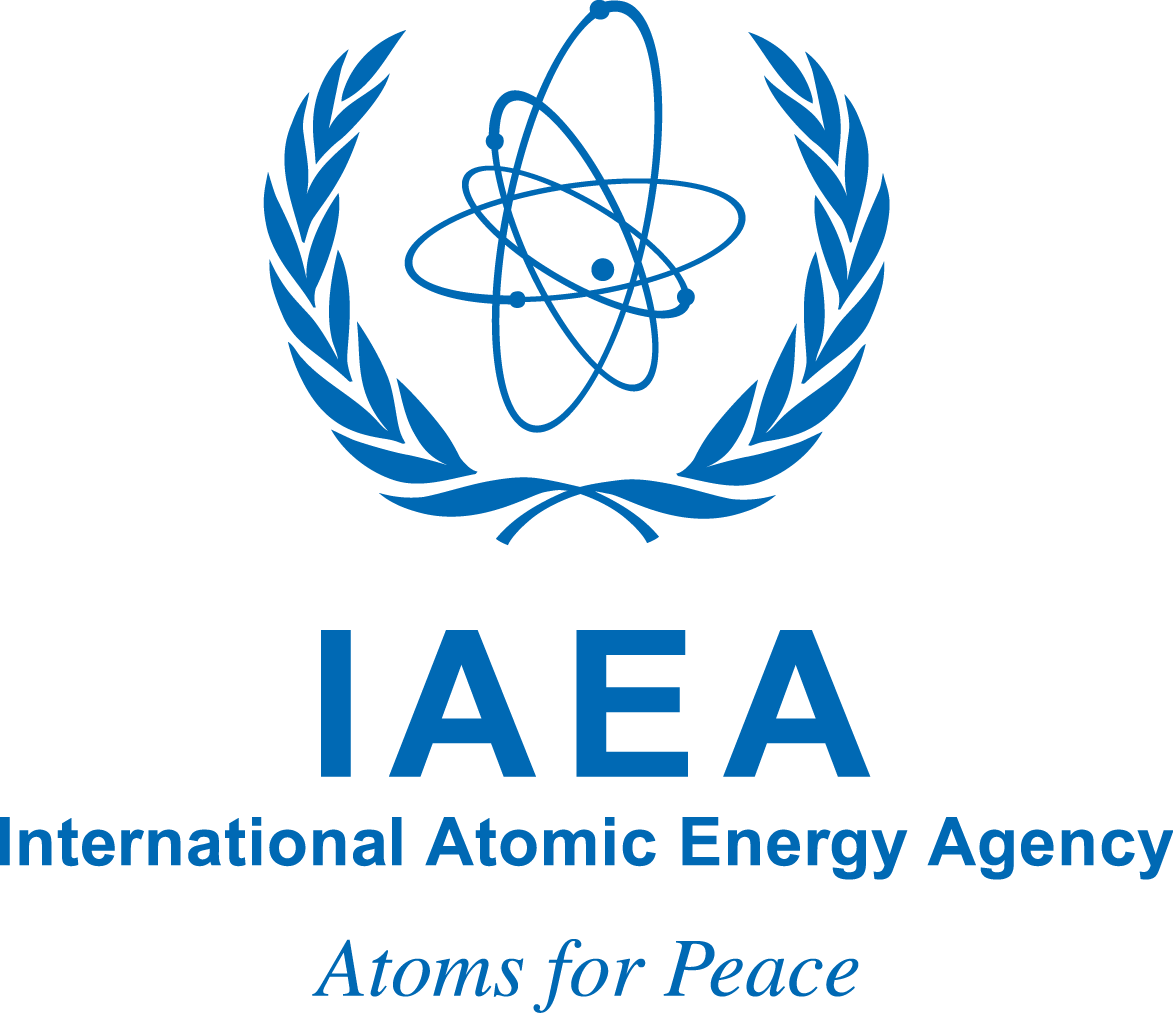
Nuclear Weapons 855 – International Community Concerned About Iranian Uranium Enrichment – Part 1 of 2 Parts
Part 1 of Part 2
There are growing fears among diplomats in the US and Europe that Iran’s largely unmonitored nuclear program and the destabilization caused by the Gaza conflict are strengthening the power of Iranian factions that back the development of nuclear weapons.
Ebrahim Raisi is the Iranian president. He has reiterated in recent days that his country is pursuing a civilian nuclear program for now.
Last week there was a quarterly meeting of the governing board of the nuclear inspectorate, the International Atomic Energy Agency (IAEA), the US and its European partners. The group issued dire warnings about the threat posed by Iran’s lack of cooperation on its nuclear program.
Rafael Grossi is the IAEA director. He admitted that that the inspectorate had lost “continuity of knowledge about the production and stock of centrifuges, rotors, heavy water and uranium ore concentrate” in Iran.
Mikhail Ulyanov is Russia’s envoy to the IAEA. He also warned that the situation was “full of danger and risks getting out of control”, though he placed the blame largely on the US walkout from the 2015 nuclear deal.
The warnings about Iran’s nuclear program came after the success of hardliners opposed to the 2015 deal constraining Iran’s program in last weekend’s parliamentary elections. The elections were highly managed and in Tehran especially were marked by a very low turnout. However, the Iranian parliament can nevertheless help frame domestic political debate.
The sense of urgency has increased because Iran is enriching uranium at such a high level (very close to the ninety precent regarded as weapons grade). In addition, in recent months senior Iranian figures have questioned Tehran’s commitment to a solely civilian nuclear program.
The regional geopolitical context in the Middle East includes fears of the Gaza conflict metastasizing into a wider Iran-Israel war. The 2015 nuclear deal expires in October next year, which will lead to the nuclear issue being removed from the UN security council agenda.
Kasra Aarabi is the director of IRGC research at United against Nuclear Iran (UANI). UANI is a bi-partisan, non-profit advocacy organization in the United States. Its stated objective is to “prevent Iran from fulfilling its ambition to become a regional super-power possessing nuclear weapons.” Along with other advocacy campaigns, the organization leads efforts to pressure companies to stop doing business with Iran as a means to halt the Iranian government’s nuclear program and its alleged development of nuclear weapons. In 2014, the United States Department of Justice intervened in a private lawsuit filed against UANI and requested its dismissal on the ground that the continued litigation of the case would jeopardize US national security. The government’s motion was granted by a federal judge in 2015, marking a rare expansion of the state secrets privilege into private civil litigation in which the government was not a party. The CEO of the UANI is Mark Wallace, who previously served as U.S. ambassador to the United Nations, representative for UN Management and Reform. Former United States Senator from Connecticut Joe Lieberman serves as the organization’s chairman.
Please read Part 2 next -
Nuclear News Roundup March 11, 2024
Japanese diplomat leads UN nuclear debate nhk.or.jp
Kremlin says Putin didn’t threaten to use nuclear weapons, U.S. took him out of context reuters.com
North Korea says Kim Jong Un led salvo tests of nuclear-capable rocket systems nknews.org
Guterres urges disarmament now as nuclear risk reaches ‘highest point in decades’ globalissues.org
-
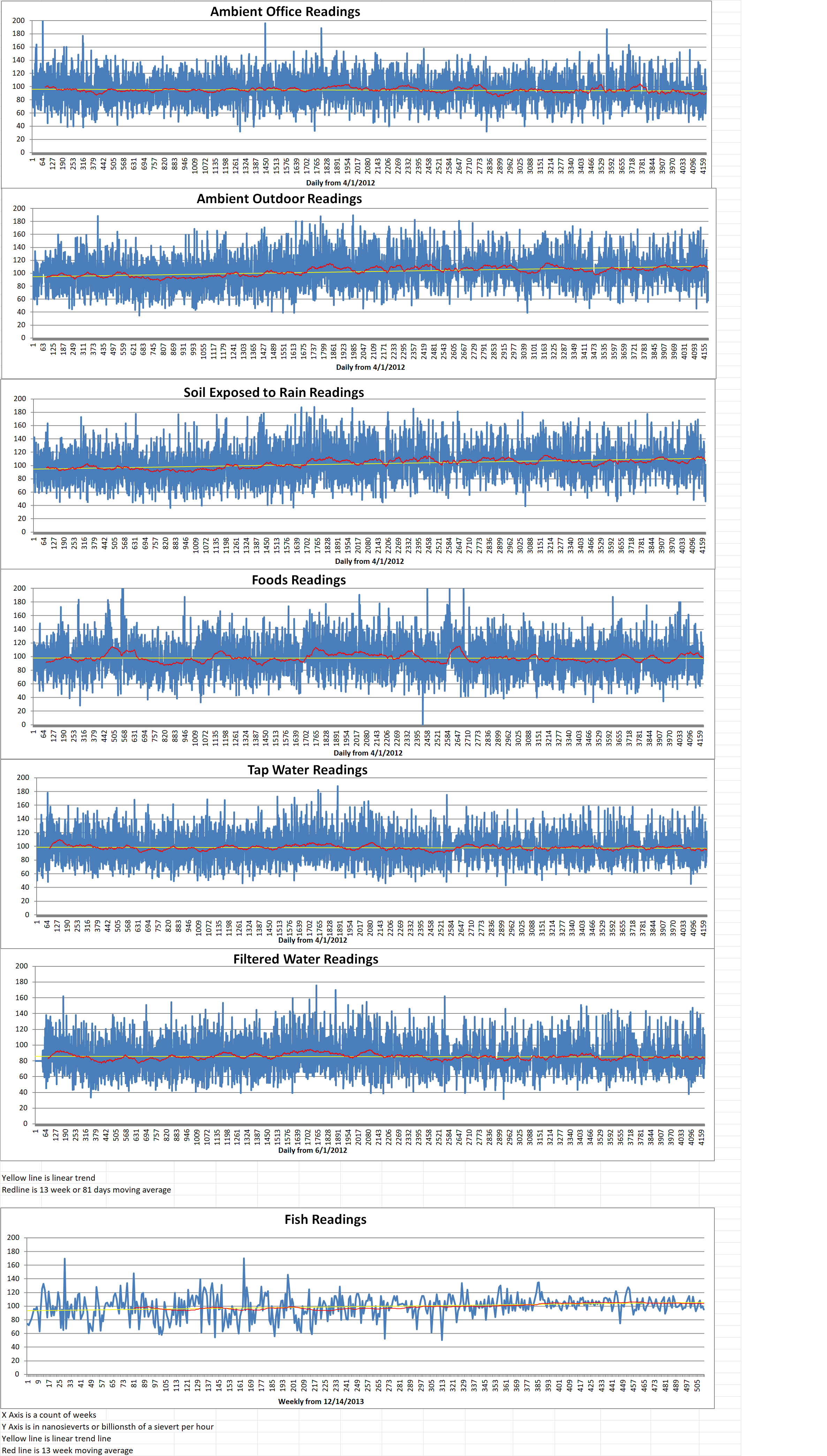
Geiger Readings for March 11, 2024
Ambient office = 99 nanosieverts per hour
Ambient outside = 102 nanosieverts per hour
Soil exposed to rain water = 101 nanosieverts per hour
Tomato from Central Market =90 nanosieverts per hour
Tap water = 86 nanosieverts per hour
Filter water = 80 nanosieverts per hour
-
Nuclear News Roundup March 10, 2024
Australia confident about receiving nuclear submarines despite U.S. funding cut nbcnew.com
South Korean envoy lambasts North Korean nuclear, missile programs en.yna.co.kr
Canadian government announces plans to fast-track approvals for nuclear energy projects yahoo.com
United Nations Nuclear Weapons postregister.com
-
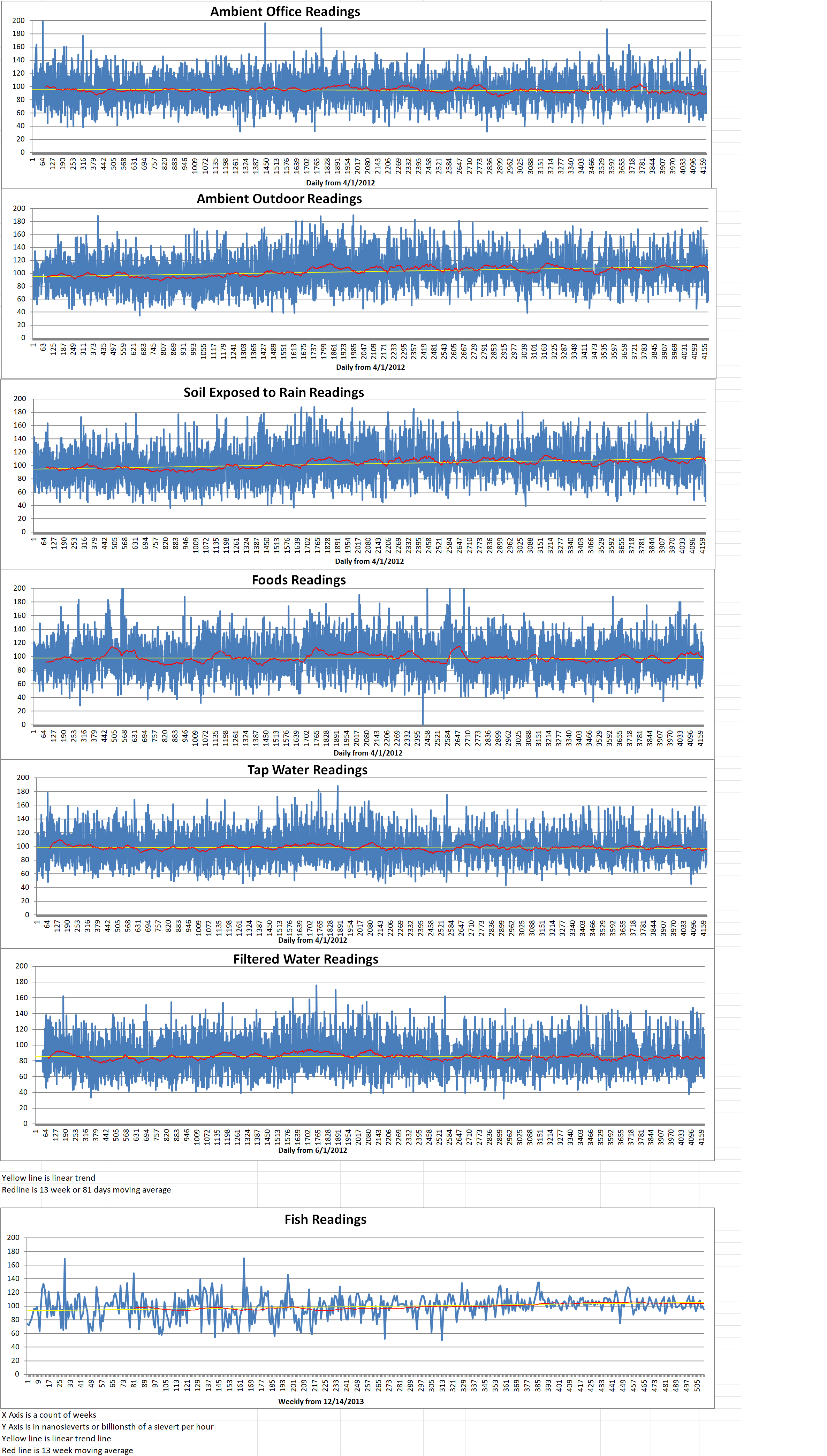
Geiger Readings for March 10, 2024
Ambient office = 94 nanosieverts per hour
Ambient outside = 102 nanosieverts per hour
Soil exposed to rain water = 98 nanosieverts per hour
Red bell pepper from Central Market = 95 nanosieverts per hour
Tap water = 86 nanosieverts per hour
Filter water = 76 nanosieverts per hour
-
Nuclear News Roundup March 09, 2024
US has not adjusted nuclear posture in response to Putin remarks aol.com
Refinancing of Barakah classed as ‘green’ loan world-nuclear-news.org
IAEA governors resolution on Zaporizhzhia criticized by Russia world-nuclear-news.org
El Dabaa: Installation of first unit’s inner containment starts world-nuclear-news.org
-
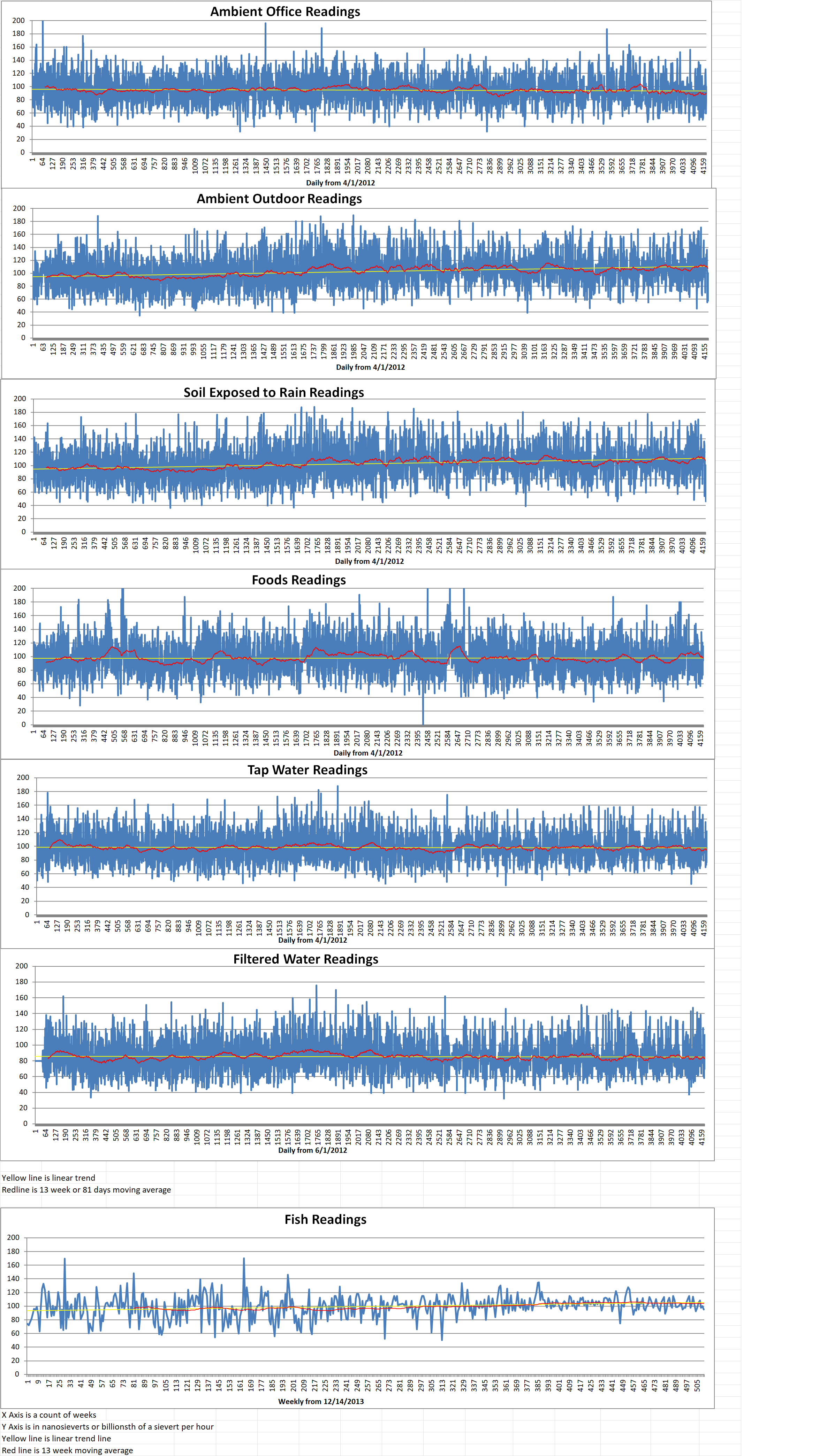
Geiger Readings for March 09, 2024
Ambient office = 95 nanosieverts per hour
Ambient outside = 58 nanosieverts per hour
Soil exposed to rain water = 46 nanosieverts per hour
Iceberg lettuce from Central Market = 115 nanosieverts per hour
Tap water = 122 nanosieverts per hour
Filter water = 113 nanosieverts per hour
Dover Sole from Central = 91 nanosieverts per hour
